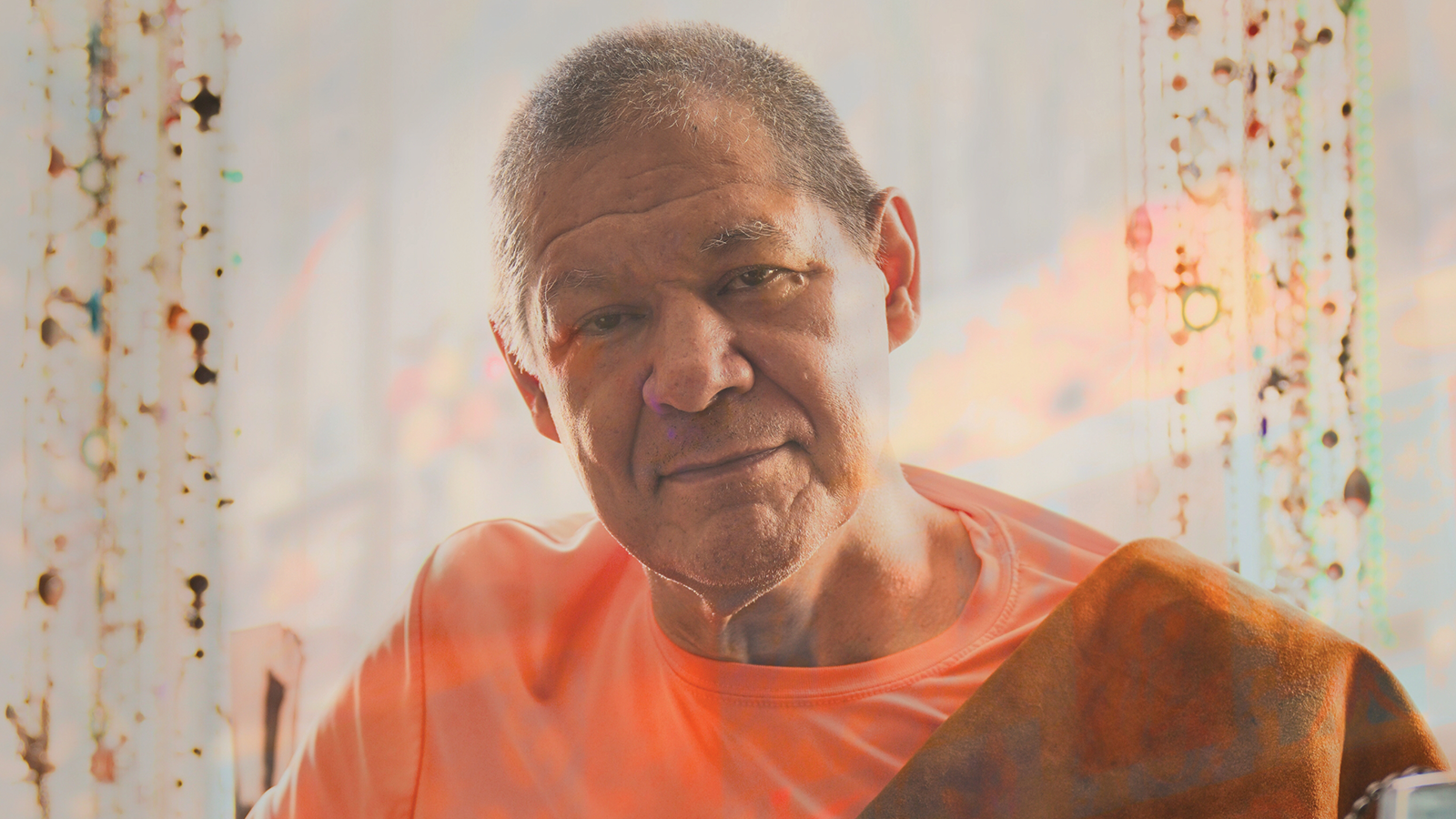Zachery Longboy on creating new work and ‘building my own tribe.’
Something that I’ve come to anticipate and appreciate in Zachery Longboy’s work is his personal stories. His ability to weave poetry, performance and surreal imagery to convey deeply felt emotion is the cornerstone of his ever-evolving practice as a working artist. Originally from Churchill, Manitoba and of Sayisi Dene lineage, Longboy began his career as an artist in 1989. He is a pillar within the canon of Queer Indigenous performance and video work, and is a known and respected storyteller. Longboy is the kind of artist whose work created paths of creative vulnerability for artists like myself to follow in. In 1993, he created a 30-second PSA titled Living Tree as part of a collective known as Second Decade. The intention was to explore the media’s ability to promote AIDS awareness by inviting ten artists with lived experience to create a series of contemporary and intelligent TV spots aimed at delivering lifesaving messaging. Now, 30 years later, he has created new works to be included in Viral Interventions. This is a program that invites artists to create an original 10-minute film about living with HIV today and exploring HIV realities in one’s world and one’s body. I sat down with Zachery Longboy to chat with him about his new film works and being a good host to the things about our body that we cannot change.
•••
JD: Hi Zachery! Thanks for having me over to do this interview.
ZL: Always happy to do something with you. Thank you for agreeing to do it.
JD: Let’s start off maybe by sharing a bit with me about the most recent film project(s) you made for Viral Interventions!
ZL: The first one is titled Guardian of Sleep. Which kind of came from a dream, but also inspired from my childhood — I used to play with a baton behind the barn in Merritt where I grew up — and I had always had the idea of it happening at a parade. When I initially got the idea to shoot I wanted to do it at the Pride Parade here in Vancouver. You know, sneak in and get the shot. But that wasn’t possible. When I was approached to be a part of Viral Interventions, I thought it was a good opportunity to do this one. I had been a part of it almost 20 years ago with a PSA I made titled The Living Tree. I really like creating things in groups or in cohorts. So I was taken up with this dream of the parade. I wanted to have the pride parade come out of the forest and really join those two visuals.
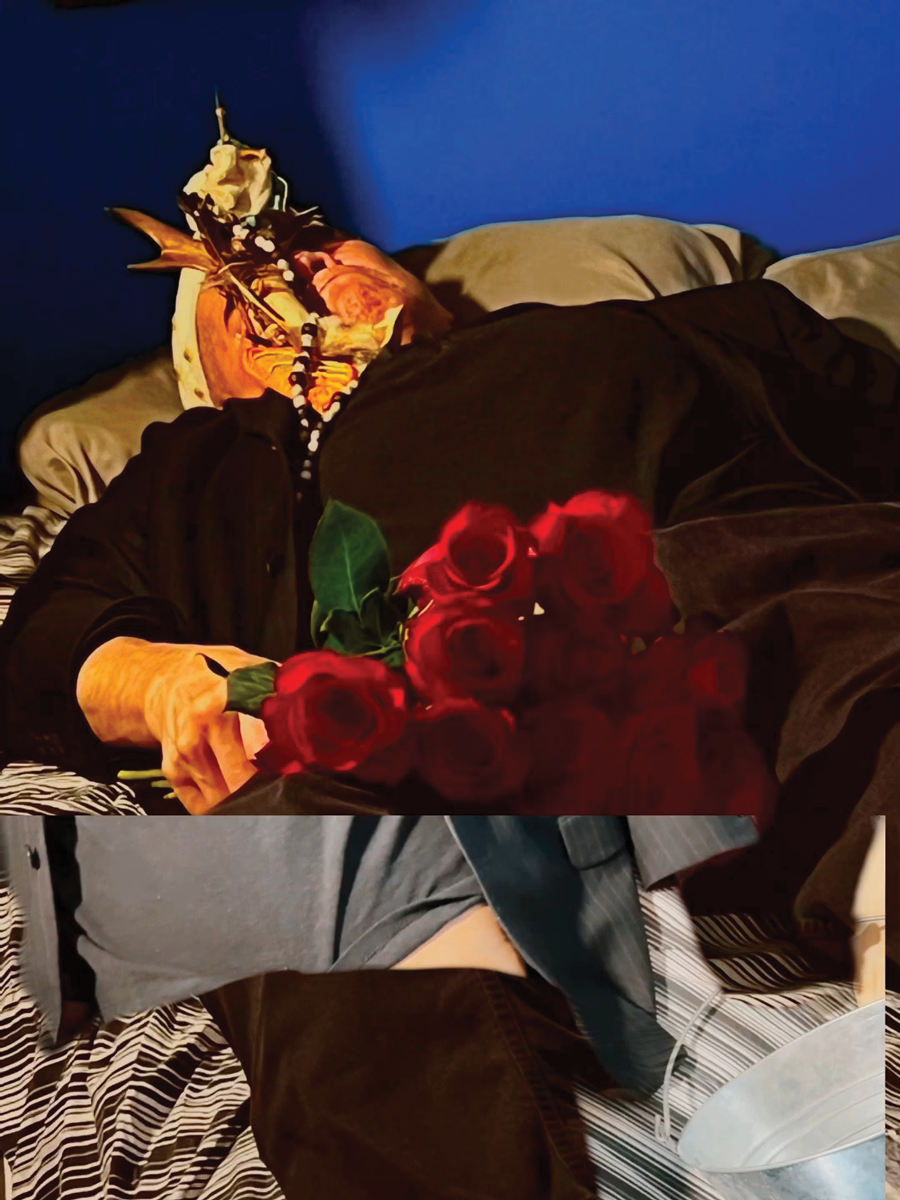
JD: Being familiar with your work and the way you engage with your lived experience and evoke certain messages through the use of specific imagery, I’m curious about the imagery in Guardian of Sleep. Was there a deeper feeling or thought behind what was presented?
ZL: I think it was always about feeling a part of something. I had always kind of felt left out or not “a part of”, so I really focused on putting myself at the centre, the focus. Trying to be the “star” of the work. I mean, it was also about community, the parade aspect, coming together. The idea of building community through performance work has always been in my practice, there’s always several people who are a part of them. It’s kind of like me building my own tribe in a way, which is something I’ve been doing since the beginning.
JD: Something that I think has been prevalent even within our mutual collaborations is this idea of building community while also making work that feels so individual and personal to our lived experience. How do you find a balance between it all?
ZL: I find that everything I’ve made has always been sort of about me, personal in their own ways. I have never been able to get away from that. It may seem a little self-consuming, but I really can only tell my story. I don’t have traditional or familial stories from my tribe. Those don’t exist for me. I don’t have the access to research or find them out really unless I went to Churchill, which doesn’t feel possible. My life is out here. I was a part of the Sixties Scoop, which was something I didn’t know until a few years ago. I had always assumed but it was also something that I really didn’t want to admit. It was hard for me.
JD: Something within our respective works that ties us together is this idea that our identities as Queer Indigenous People—who are displaced for various reasons, often to urban centres—is just as traditional or as much of the material that makes up the fabric of the “Indigenous experience”. I’m really grateful for all you did to carve out a space for those works to be shown and those sentiments to be shared because that really validated a lot of what I felt when I ran away to Vancouver. I wouldn’t ever compare my experience of colonial displacement to yours, but there was something within your work that felt inherently traditional to me because it validates that feeling of being othered. Talk to me about the other film piece you created.
ZL: It is titled Host. And that one is deeply personal. It’s ultimately about all of the things that are wrong with me, physically. The Parkinson’s, the spinal problems and arthritis I’m dealing with. It’s about my body being a host for all these things that have happened. Something that I learned is that I’ve got to be a good host to them. I’ve got to acknowledge them and I have to put my arms around them and walk them along with me, which can be very difficult. But it’s something that I focus on because I have to care for them. It’s not that I wouldn’t want to kill them, because I would, but I know that I cannot do that. At times the way that they set me back or exhaust me has had me feeling like they are something to be ashamed of. Which is a feeling I hadn’t felt about my health in a very, very long time, because being HIV-positive I don’t feel ashamed anymore. I feel like I learned to be a good host to it. So, this piece was about taking that sentiment, that feeling, and applying it to these other things.
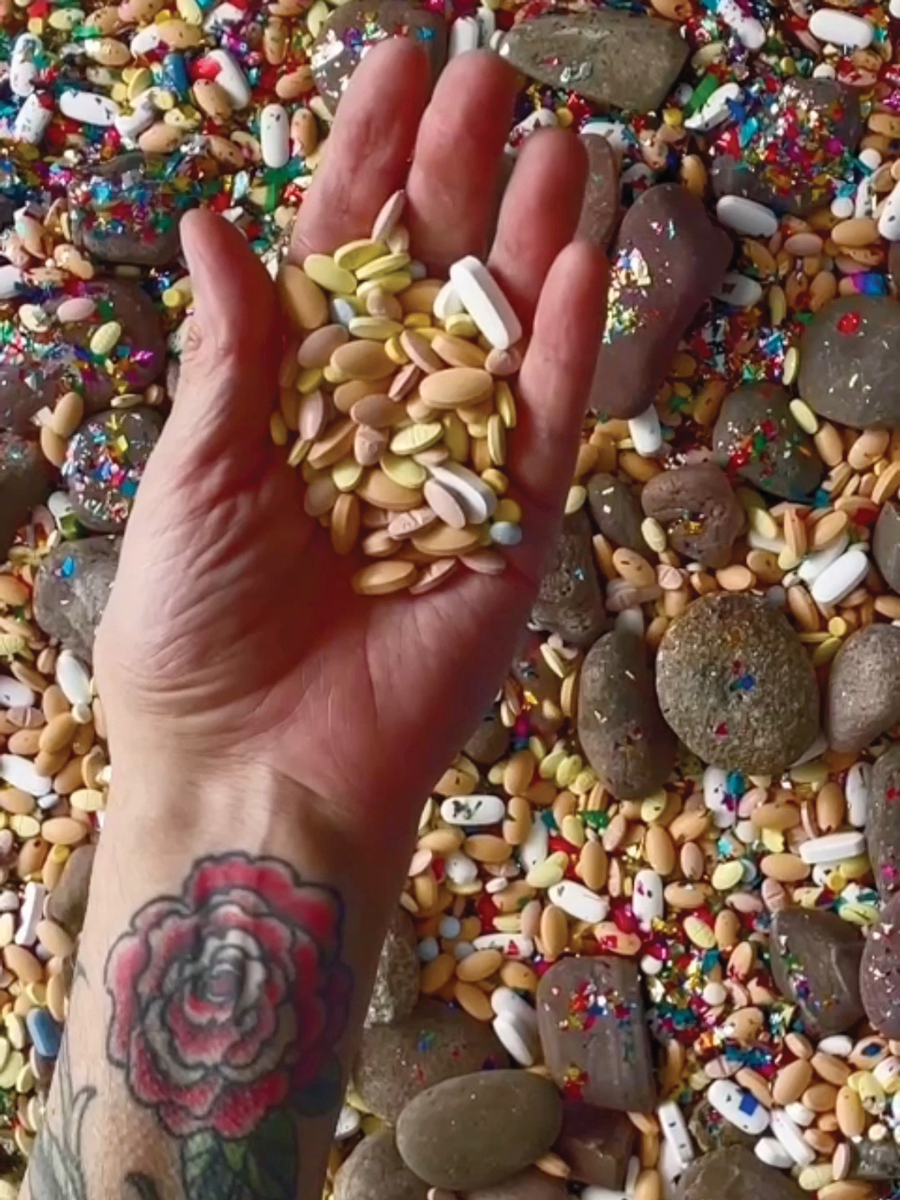
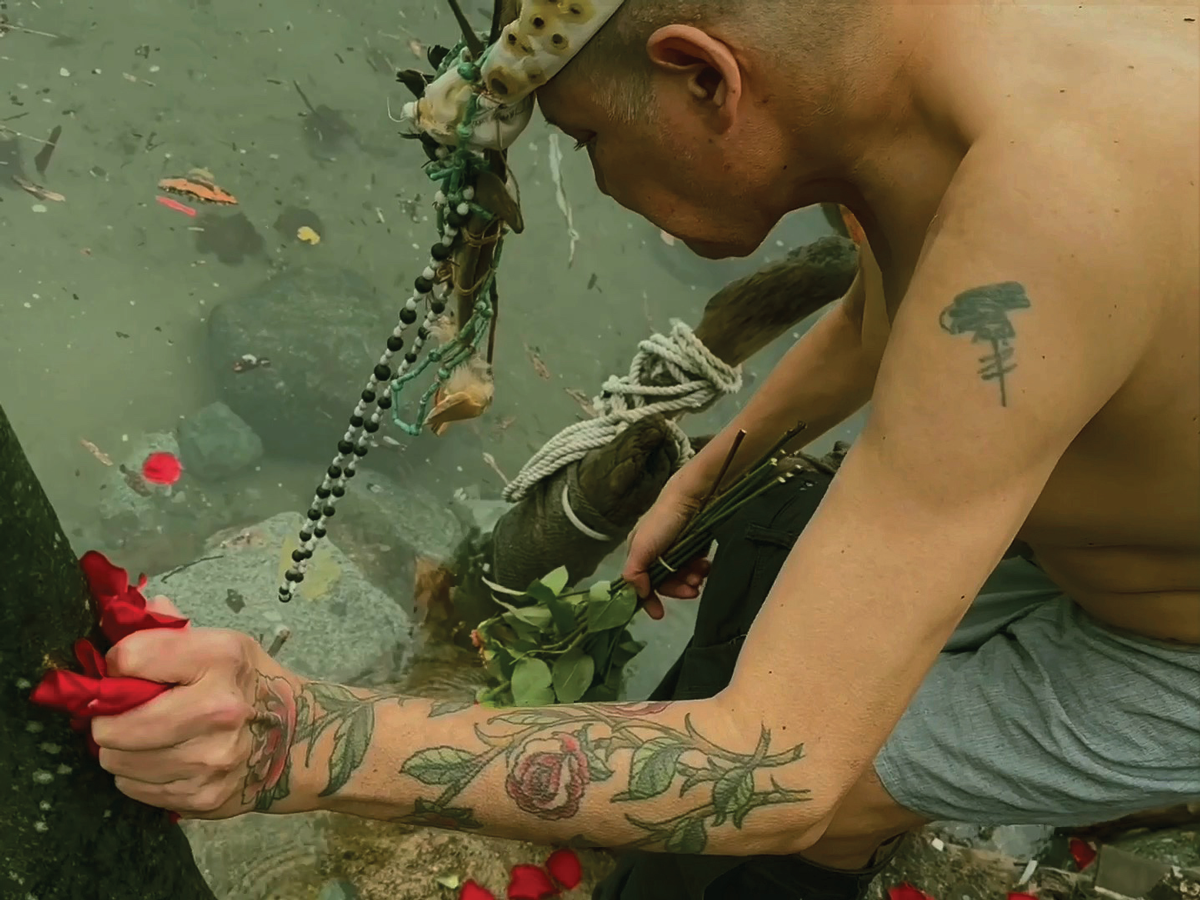
JD: When I was first introduced to your work, something that I found so strong throughout was this kind of radical acceptance towards your HIV diagnosis which, in the early 1990s, wasn’t always the case in artwork being made about the intersections of HIV/AIDS and Indigenous people. Did you find that past experience helpful when making this new work that relates to your body and your health in different ways?
ZL: I definitely think it made it easier. There were parts on Host where I was putting things on tape for the first time and I didn’t feel ashamed. I found I could talk more openly about something that I felt ashamed of, probably because I was doing it through a creative lens like I did in the 1990s when I was making sense of HIV. It was really nice to accept things. To feel a sense of acceptance towards my physical ailments. These experiences are things that I share in my work sometimes as a way to let people know what I’m going through, but not in a negative way. Like me embracing it in my work and feeling joy within my work will translate to others.
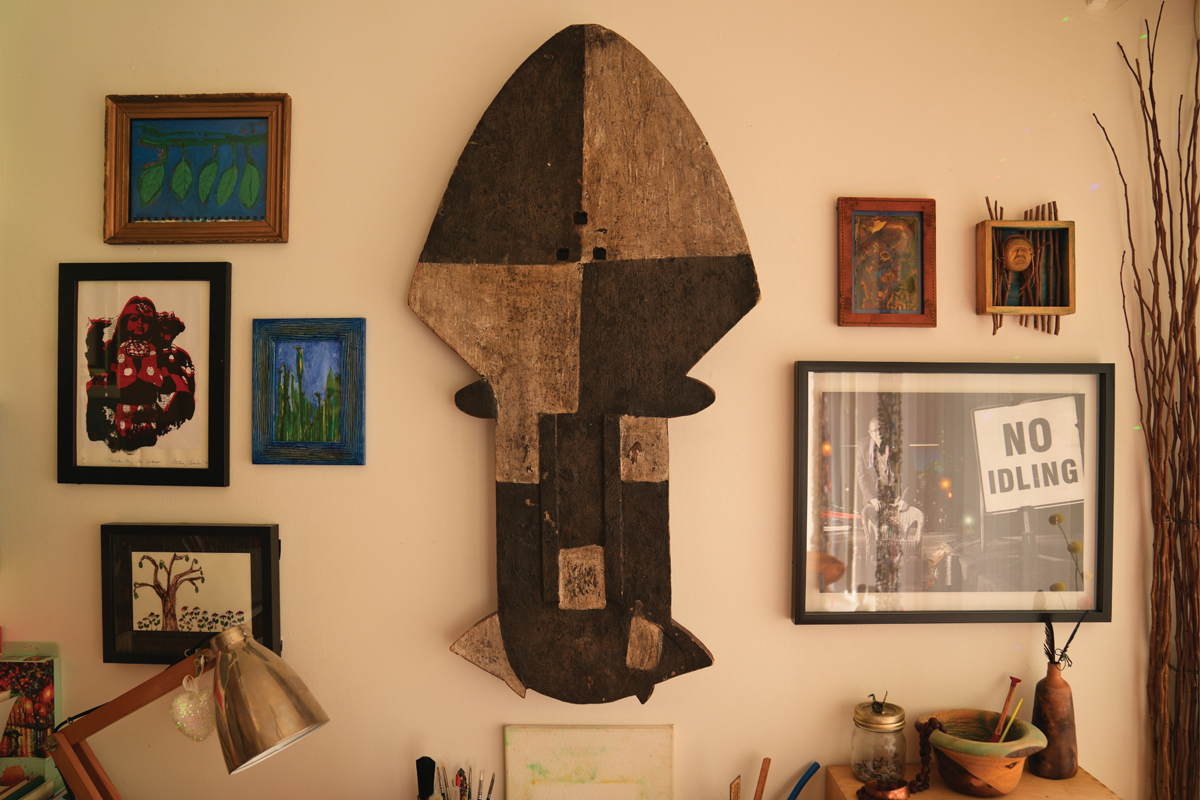
JD: I remember on one of our first collaborations I was doing some research and I’d come across people writing about or talking about your work from a place of sadness or pity. When I asked you about it, I was so enamoured by your total refusal to take on any meaning that didn’t feel authentic to how you felt when making it. I think I was at a time in my life as an artist where I cared so much about what people thought about me or how they felt about where I had been and what I had done. We talked a lot about expectation when making work. Have any of those feelings around anticipating how someone might feel changed?
ZL: Not really. I find that I don’t really think too hard about what I’m making until I’m actually there making it. With the two works [Guardian of Sleep and Host] I had a general skeleton about what I wanted to say but I like to have the opportunity to change things and find new things when I’m working on it. I think that anticipating how someone might receive it takes away from that.
JD: I think there’s a lot of power in giving people the unfiltered truth. It’s kind of the only way we get someone to understand or empathize with an experience that isn’t their own.
ZL: For sure. I think at the end of the day I am just trying to make sense of all this. Of my life. And maybe part of that is sharing it with others so they might also make sense of it.

